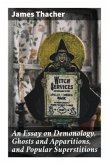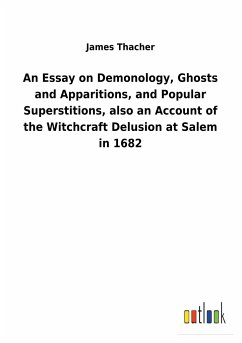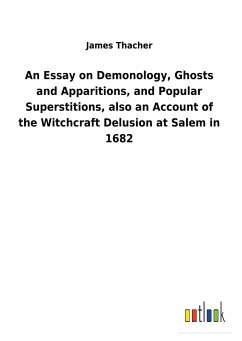In "An Essay on Demonology, Ghosts and Apparitions, and Popular Superstitions," James Thacher presents a comprehensive exploration of supernatural beliefs that permeated 18th-century society. Thacher employs a methodical and analytical approach, blending empirical observation with Enlightenment rationalism. The text delves into a wide array of themes, including the nature of ghosts, the psychological underpinnings of supernatural experiences, and the cultural significance of folklore, all while contextualizing these phenomena within contemporary societal norms and scientific developments. Through a combination of anecdotal evidence and scholarly inquiry, Thacher engages the reader in a dialogue about the boundaries of reason in an age marked by both ignorance and curiosity about the inexplicable. James Thacher, a prominent physician and scholar, was deeply influenced by the intellectual currents of his time, which included a burgeoning interest in science and a skepticism regarding superstitious beliefs. His background in medicine, coupled with a keen interest in human psychology, prompted him to investigate the intersection between belief and reality. Thacher's own experiences and observations undoubtedly informed his perspectives on the allure and fear associated with the supernatural, as well as the societal implications of such beliefs. This book is highly recommended for readers interested in the historical dialogue surrounding superstition and reason. Thacher's accessible prose invites both scholars and general readers to reflect on the enduring fascination with the supernatural and its implications for understanding human nature. A must-read for those exploring the interplay between science and belief in literature and social history.
Bitte wählen Sie Ihr Anliegen aus.
Rechnungen
Retourenschein anfordern
Bestellstatus
Storno








